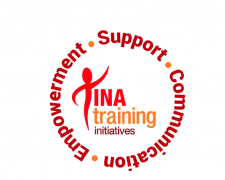Beyond ‘Us’ and ‘Them’
A person-centred approach to service provision, as required by The Care Act (2014) will demand more than compliance with The Equality Act (2010).
Participants will be encouraged to share frankly from their own experience and perspective.
The training will afford the opportunity for interaction and reflection as we work to develop the practical skills and predisposition to look for similarities first, recognize differences, address inequalities and ensure that, irrespective of age, gender, class, colour, ability/disability, sexuality, cultural heritage, religious conviction or whatever, as members of the one community we are all afforded the support we require to keep safe and realize our own unique potential.
‘Society – the sum of human conditions and activity regarded as a whole functioning interdependently’ (The Concise Oxford Dictionary)
‘It is in the shelter of each other that the people live’ (Irish proverb as quoted by Mary Pipher)
‘We are more alike my friends than we are unalike’ (Maya Angelou)
This one day course will promote compliance with The Equality Act (2010) and The Care Act (2014).
Participants will be invited to assess their own responsibilities /opportunities /inclinations to promote equality, celebrate diversity, identify obstacles and determine strategies for the future development of services.
In a relaxed and informal atmosphere, participants will explore notions of inclusion, exclusion and identity. Through key texts/handouts, group exercises and discussion, the group will be encouraged to recognise prejudice, consider discrimination and its disabling consequences and work towards inclusive practice. There will be the opportunity to explore the historical, political, legal and social context of progress towards greater equality of opportunity.
Aims
- To understand the requirements of The Equality Act (2010) with regard to service provision
- To explore attitudes to "difference", consider the history and consequences of institutional oppression and understand how celebrating diversity and extending opportunity are central to our attempts to promote civilisation.
Learning Outcomes
- To promote compliance with the requirements of The Equality Act (2010)
- To understand what we mean by ‘society’
- To establish an understanding of why promoting inclusion is not just about being "politically correct".
- To be aware of personal values - where they come from and how they affect behaviour.
- To get "taboo" subjects e.g. sex, religion, politics out into the open.
- To identify obstacles to more inclusive working practices / lifestyles.
- To recognise ways in which we are able to make a difference.
Programme
- Domestics, Aims, Objectives, ‘Groundrules’ Introductions
- Background
- Understanding the law – The Equality Act (2010) Section 149
- Equality and The Care Act (2014) – A consistently person-centred approach
- Anybody here been a child?
- ‘Us’ and ‘Them’
- Real Inequalities:
- Who suffers the effects of discrimination?
- The great God ‘Competition’:
- Survival of the fittest
- Co-operation and survival:
- Resilience
- The next step:
- Identify action points
- Summary
- Closure
Who is it for?
Care Managers, Care and Support Staff, Social Workers, NHS Staff, Volunteers anyone that works with people.
What people say….
‘Approached from our perspective….started from where we are’
‘Excellent presentation of learning material’
‘Engaging……..drawing on real life situations’
‘An opportunity to freely discuss from our own individual experiences’
For further information please contact:
Tina Thordal – 07815 064710 or e-mail tina@tinatraining.co.uk
Bill Horrocks – 07929 035297 or e-mail bill@tinatraining.co.uk
